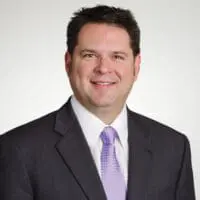Publication
Under Construction – November 2025
Letter From the Editor
Welcome to the fall edition of Snell & Wilmer’s Under Construction Newsletter. As brisk autumn air sets in, it’s an ideal moment to shore up the basics — both in your projects and in your grasp of the continually shifting field of construction law.
In this newsletter, we explore a variety of topics related to current construction trends and legal news that may be relevant and helpful to you and your business. We have assembled a selection of articles that include discussions of state-specific issues including how Idaho’s Contractor Registration Act bars unregistering contractors from enforcing contracts or filing liens, though the state Supreme Court allows remedies for post-registration work if severable. This edition discusses how contractors can maximize cash flow and profits by substituting security for retainage on public projects. We also highlight the California Court of Appeals discussion and latest decision relating to subcontractor substitution protections under Public Contract Code §4107. We round out our newsletter summarizing how the Colorado Supreme Court clarified that the economic loss rule bars tort claims for purely economic harm arising from contracts — even when alleging willful and wanton misconduct.
We hope you will find our newsletter informative and enlightening. Please let us know if we can address a specific construction issue in a future newsletter. We hope the remaining of 2026 is profitable, busy, and safe for you, your company, and your family!
We close this edition with a note about our friend and colleague of more than 40 years, Jim Sienicki, who we lost too soon. Jim’s journey was marked by service, connection, and a contagious enthusiasm for life. A graduate of the Air Force Academy and later the University of Kansas School of Law, Jim started with us as a summer associate and built a distinguished career as a litigation partner and chair of the firm’s construction practice. Well beyond those accomplishments, Jim will be remembered for his warmth, generosity, and unwavering belief in those around him. Jim lived life with joy and purpose – running 20+ marathons, coaching sports, and supporting his friends and family at every opportunity. We are grateful for the 40+ years of Jim’s influence here, living those values and modeling them so well for us all.
Best Regards,
Timothy E. Reilly, Editor
Table of Contents
Idaho Supreme Court Clarifies the Scope of Idaho’s Contractor Registration Act and Mandatory Fee Shifting on Lien Foreclosure Actions
The Idaho Contractor Registration Act (ICRA)1 imposes mandatory registration requirements on contractors operating within Idaho. Since January 1, 2006, it has been unlawful for any person to engage in the business of or hold themselves out as a contractor without being registered in accordance with the ICRA. The Act imposes significant penalties for noncompliance. Unregistered contractors are prohibited from filing lien claims on real property and are barred from bringing or maintaining legal actions to collect under contracts entered into while unregistered, as those contracts are considered illegal and unenforceable. However, as clarified by the Idaho Supreme Court in Genho v. Riverdale Hot Springs, LLC,2 equitable remedies and lien foreclosure may be available for work performed after registration if that work is severable from work performed while unregistered.
In Genho, the dispute arose from a construction project at Riverdale Resort. Genho, a contractor, performed work on the property, while initially unregistered. At Riverdale’s suggestion, Genho applied for a contractor’s registration on or about February 28, 2018, and received the confirmation of registration on March 19, 2018. Before receiving the registration, Genho submitted a bid, entered into a verbal agreement with the owner and received payment to purchase materials and begin work.
A payment dispute later developed. Genho recorded a mechanic’s lien on the property and sued Riverdale for breach of contract, unjust enrichment, quantum meruit, conversion, and lien foreclosure. The case proceeded to a jury trial. Riverdale moved for a directed verdict on all claims based on Genho’s unregistered status. The district court granted the motion on the breach of contract claim because Genho’s partial performance prior to receiving his registration violated the ICRA, but it denied the motion as to the remaining claims. The jury ultimately found in favor of Genho on the equitable claims and the lien foreclosure.
On appeal, the Idaho Supreme Court affirmed in part and reversed in part the district court’s judgment. It upheld the denial of a directed verdict on the equitable and lien foreclosure claims but vacated the attorney fee award on the conversion claim.
The Court reasoned that allowing equitable remedies for post-registration work strikes an appropriate balance between enforcing the ICRA’s registration requirement and preventing the unjust enrichment of property owners who receive legitimate work. Conversion claims are independent of seeking compensation under ICRA and thus fall outside its scope. The Court further explained that a mechanic’s lien arises from the work performed, not merely from entering into a contract; accordingly, post-registration work can support a lien foreclosure action even if the underlying contract was initially illegal under ICRA. As a result, Genho was entitled to a lien for severable work performed after becoming registered. Importantly, the Court affirmed the mandatory nature of attorney fee awards in lien foreclosure actions under Idaho Code § 45-513, aligning with precedent recognizing such fees as mandatory and part of the enforceable lien.
With respect to attorney fees on the remaining claims, the Court upheld the fee awards tied to the lien foreclosure and related commercial claims. In contrast, it reversed the fee award on the conversion claim, because conversion is an independent tort and was not integral to the commercial transaction governed by the ICRA.
In sum, while Genho prevailed on severable equitable claims and lien foreclosure for post-registration work, the decision underscores the importance of timely registration. Idaho courts strictly apply the ICRA, and contractors should ensure compliance before commencing work. The case offers practical guidance for contractors, property owners and practitioners navigating disputes involving contractor registration and lien rights in Idaho.
Footnotes
1. Idaho Code §§ 54-5201 through and including 54-5219.
2. 174 Idaho 894, 560 P.3d1041 (Idaho 2024).
Unlock Your Cash Flow: Substituting Security for Retainage on Public Projects
By Timothy E. Reilly and Maria Conversa
Retainage is a critical tool for public project owners to ensure satisfactory contractor performance. The maximum retainage rate for public projects typically ranges from 5% to 10%, depending on the contract value. For large contracts, the withheld amount can significantly strain a contractor’s cash flow and overall financial position. Most contractors would prefer no retainage or its early release, yet many are unaware that several states allow substituting securities for retainage, freeing up funds during the project.
In Colorado, for contracts exceeding $150,000 awarded by any public entity, contractors may withdraw all or part of the retainage by depositing acceptable securities with the public entity.1 “Acceptable securities” include federal bonds, treasury notes, treasury bills, general obligation or revenue bonds of the state or its political subdivisions, or certificates of deposit from a state or national bank or for an FDIC-insured savings and loan association.2 The securities must have a market value at least equal to the amount withdrawn. Contractors and public entities may enter an escrow agreement with a bank, trust company, or savings and loan association to appoint an escrow agent for custodial care of the securities.3 The custodian collects all interest and income from the securities and pays it to the contractor.4 This substitution can occur at any time during the project, offering flexibility.
The substitution of securities for retainage provides contractors with the time value of money, with benefits varying based on the type of security, current yield, and the company’s investment goals. For example, consider a $20,000,000 contract with a one-year duration and 5% retainage. At the outset the contractor could post securities for the full $1,000,000 or roll the securities with each monthly payment application. Substituting securities with an acceptable yield could increase the contractor’s profitability through early substitutions, potentially yielding $40,000 or more in return.
Several other states offer similar opportunities for retainage substitution, though the specifics vary regarding security types, interest allocation, and escrow requirements. Below are examples from six states, highlighting their approaches and distinctions from Colorado’s model:
- Arizona: Arizona permits contractors on public works contracts to substitute securities, such as money market accounts, time certificates of deposit, or government securities, for the 10% retainage.5 After 50% project completion, if progress is satisfactory, retainage is reduced to 5%, and half of the previously withheld amount, including any substituted securities, is released to the contractor upon request. Contractors retain all interest or income earned from these securities, which are returned within 60 days of final completion, provided satisfactory receipts and lien waivers are submitted. Subcontractors may also substitute securities under similar terms. Compared to Colorado’s model, Arizona’s system supports cash flow with a phased retainage reduction but requires bank waivers for certain substitute securities, introducing an additional procedural step.
- California: California mandates that all public works contract documents permit contractors to substitute securities for retainage to ensure performance.6 Contractors can deposit securities with the State Treasurer or a bank escrow agent, and immediately receive withheld funds, with interest accruing to them until completion. Subcontractors handling more than 5% of the bid can also substitute securities if the contractor agrees. This flexible system mirrors Colorado’s cash flow benefits but offers a more standardized escrow process.
- Oregon: Oregon permits contractors on public improvement contracts to substitute bonds, securities, or surety bonds for the 5% retainage, with agencies required to accept unless good cause is documented.7 Securities can be deposited with the agency or a bank, reducing retainage and releasing funds mid-project, with interest accruing to the contractor. Contractors may also deposit retainage in an interest-bearing account, earning interest until completion. If utilized, this option must extend to subcontractors handling over 5% of the work, with funds released within 30 days. Oregon’s system aligns with Colorado’s cash- flow and profit benefits, adding surety bond flexibility and subcontractor inclusion, though agency rejection with cause introduces a potential hurdle.
- Texas: Texas allows retainage (5-10%) on contracts of $10 million or more (competitive or non-competitive) to be deposited in an interest-bearing account by agreement, with interest paid to the contractor upon completion.8 Unlike Colorado, Texas does not permit securities substitution. This limits the cash flow benefits compared to Colorado’s more dynamic approach.
- Washington: Washington allows contractors on public improvement contracts to substitute securities9 (e.g., U.S. bonds via escrow,10 or surety bonds11 for the 5% retainage releasing funds mid-project). Contractors can opt for retainage to be held in a fund,12 an interest-bearing account13 with interest paid, or escrowed as securities14 chosen by the contractor and approved by the agency, with interest accruing to them. Contractors must accept similar bonds from subcontractors, whose retainage is capped at 5% with interest. Unlike Colorado’s $150,000 threshold, Washington’s rules apply to all public projects (except certain federal contracts), offering more options — securities escrow, bonds, or accounts — though agency approval adds a step.
- Florida: Unlike Colorado, Florida does not currently permit substituting securities for retainage mid-project or provide interest on withheld amounts. A pre-2020 version of the statute allowed securities substitution with interest earned, but this was repealed. Florida’s current statute allows public entities to withhold up to 5% for retainage on construction service contracts exceeding $200,000, with flexibility to reduce the rate, release it incrementally per a contract schedule, or release it fully for completed work.15 Florida’s approach offers cash flow relief through potential early release but lacks the substitution and profit mechanisms of Colorado’s model.
Colorado’s law stands out for its broad definition of “acceptable securities” and mandatory interest payments to contractors, but the concept of retainage substitution is gaining traction across states like Arizona, California, Oregon, and Washington. Each state offers unique advantages, such as Oregon’s surety-bond flexibility or California’s standardized escrow process, while others, like Texas, prioritize early release or interest-bearing accounts over substitution. Contractors should explore these options to optimize cash flow and financial flexibility on public projects.
The opportunity to receive all or a portion of retainage on a public project is a significant benefit to contractors. Contractors operating in states with this opportunity should review and implement a program to capitalize the opportunity and align with the company’s financial goals.
Footnotes
1. C.R.S. § 24-91-105.
2. C.R.S. § 24-91-102(1).
3. C.R.S. § 24-91-106.
4. Id.
5. Ariz. Rev. Stat. §§ 34-221(C)(5) and 34-609(B)(5).
6. Cal. Pub. Cont. Code § 10263.
7. ORS § 279C.560.
8. Tex. Gov’t Code § 2252.032(c).
9. R.C.W. § 60.28.011.
10. R.C.W. § 60.28.011(4)(c).
11. R.C.W. 60.28.011(6).
12. R.C.W. § 60.28.011(4)(a).
13. R.C.W. § 60.28.011(4)(b).
14. R.C.W. § 60.28.011(4)(c).
15. Fla. Stat. § 255.078 (current version).
California Appellate Court Reaffirms Subcontractor Substitution Statutory Requirements (Public Works)
The California Transportation Agency awarded a contract to a construction joint venture (OC 405 Partners) for improvements to Interstate 405. OC 405 Partners then awarded subcontract work to Golden State Boring & Pipe Jacking, Inc. (GSB). The parties, however, disagreed on the scope of the subcontract work and never executed a written subcontract. OC 405 Partners subsequently engaged another subcontractor, prompting GSB to file a lawsuit seeking benefit of the bargain damages, on the ground that OC 405 Partners failed to comply with Public Contract Code section 4107’s subcontractor substitution procedures.
The Superior Court granted summary judgment in favor of OC 405 Partners and the other defendants, holding that GSB was not entitled to the protections of section 4107 because it did not meet the requirements of section 4100 et seq. Specifically, GSB was not a “listed subcontractor” in the original bid, and its proposed work did not exceed one-half of one percent of the prime contractor’s total bid, a threshold requirement under section 4104.
The California Court of Appeal affirmed. It concluded that section 4107’s substitution procedures did not apply to OC 405 Partners’ substitution of GSB. The Court emphasized that the protections of section 4100 et seq. apply only to subcontractors whose proposed work exceeds the one-half percent threshold of the prime contractor’s total bid. Because GSB’s bid did not meet this threshold, it was not entitled to the protections of section 4107. The Court also noted that nothing in the prime contract altered this statutory requirement. Accordingly, the judgment in favor of the defendants was affirmed.
Golden State Boring & Pipe Jacking, Inc. v. Astaldi Construction
Docket: G062891 (Fourth Appellate District)
Willful and Wanton Misconduct Not Exempt From the Economic Loss Rule in Colorado
By Laurie Choi and Joe Layzell
A recent Colorado Supreme Court decision further clarifies the scope of Colorado’s economic loss rule, which bars a party from pursuing tort claims when the alleged harm is purely economic and arises from a contractual relationship between the parties. In Mid-Century Insurance Company v. HIVE Construction Inc., 2025 CO 17 (Colo. 2025), the Court held that allegations of willful and wanton misconduct are not exempt from the economic loss rule.
In Mid-Century, a project owner’s property insurer sued the general contractor for negligence but failed to timely assert a breach of contract claim. The trial court allowed the negligence claim to proceed because it alleged willful and wanton misconduct and reasoned the economic loss rule should not bar claims for “intentional torts.”1 The Colorado Court of Appeals reversed, holding that allegations of willful and wanton misconduct are not exempt from the economic loss rule, and the Colorado Supreme Court affirmed.
Central to the Court’s ruling was distinguishing willful and wanton misconduct from intentional conduct. Whereas willful and wanton misconduct refers to actions committed purposely without regard for the consequences, intentional conduct requires the actor to intend or know the result will occur as a result of the conduct.
Given the evolving landscape of the economic loss doctrine in Colorado, careful pleading is critical when asserting tort-based claims against contractors, designers, consultants, and subcontractors.
Footnotes
1. The trial court cited McWhinney Centerra Lifestyle Center LLC v. Poag & McEwen Lifestyle Centers-Centerra, 486 P.3d 439 (Colo. App. 2021), where the Court held that the economic loss rule in most instances does not bar intentional tort claims. McWhinney follows dicta from the Colorado Supreme Court decision Bermel v. BlueRadios, Inc., (Colo. 2019) where the Court acknowledged the economic loss rule generally should not shield intentional tortfeasors from liability that also happens to breach a contractual obligation.
About Snell & Wilmer
Founded in 1938, Snell & Wilmer is a full-service business law firm with more than 500 attorneys practicing in 17 locations throughout the United States and in Mexico, including Phoenix and Tucson, Arizona; Los Angeles, Orange County, Palo Alto and San Diego, California; Denver, Colorado; Washington, D.C.; Boise, Idaho; Las Vegas and Reno-Tahoe, Nevada; Albuquerque, New Mexico; Portland, Oregon; Dallas, Texas; Salt Lake City, Utah; Seattle, Washington; and Los Cabos, Mexico. The firm represents clients ranging from large, publicly traded corporations to small businesses, individuals and entrepreneurs. For more information, visit swlaw.com.







